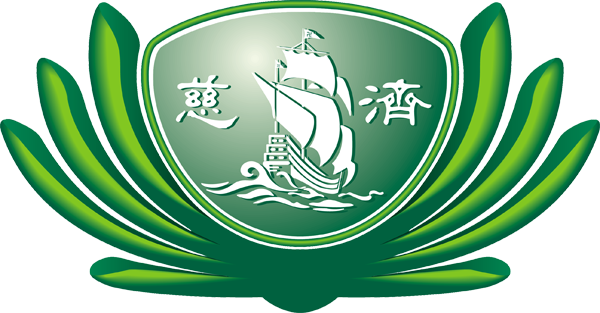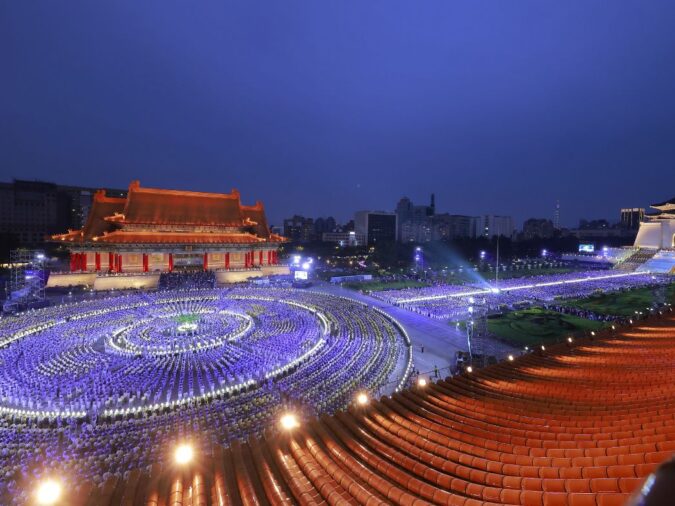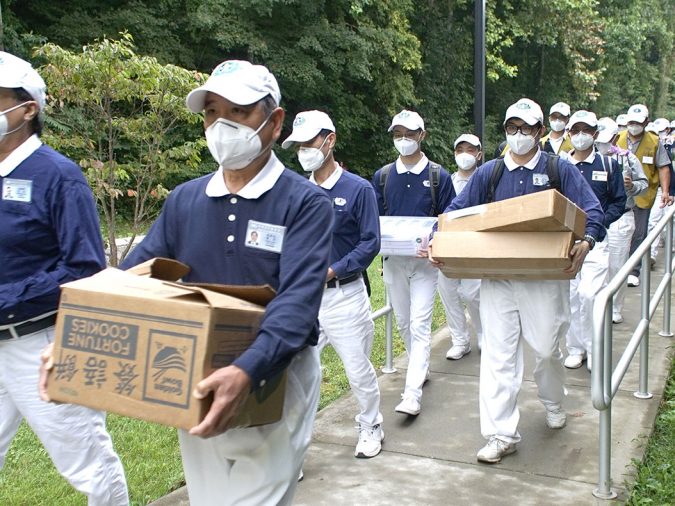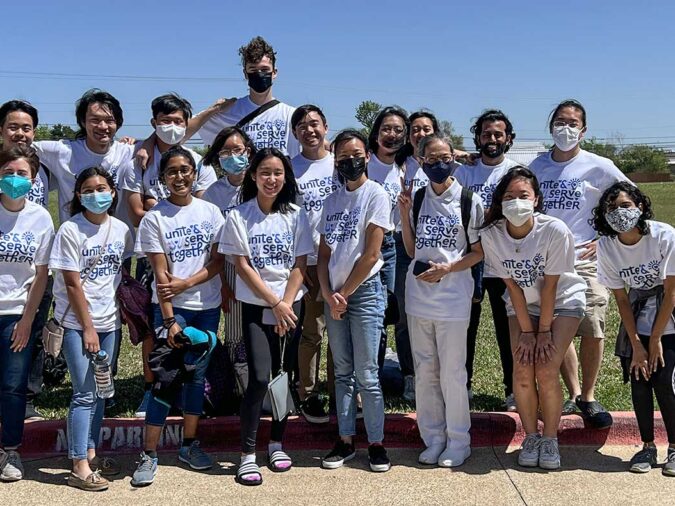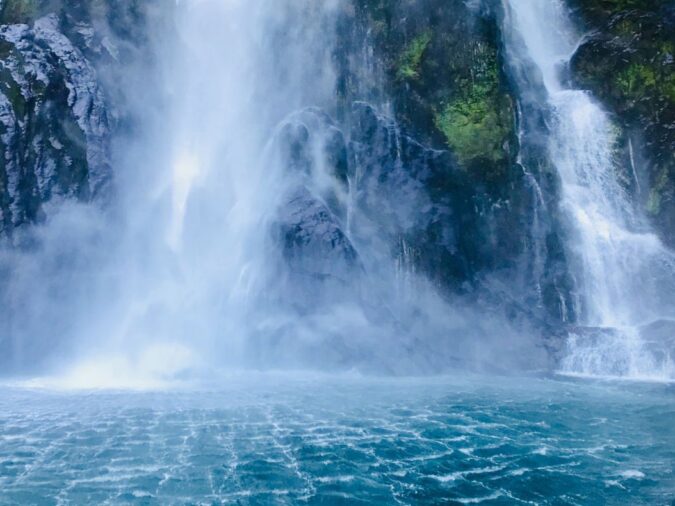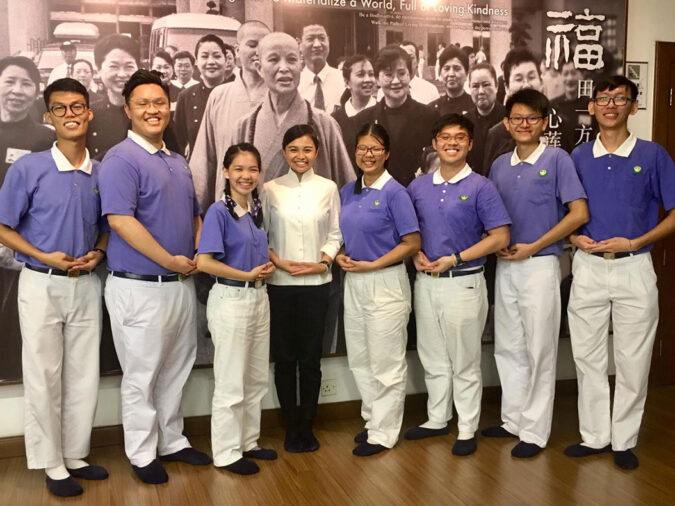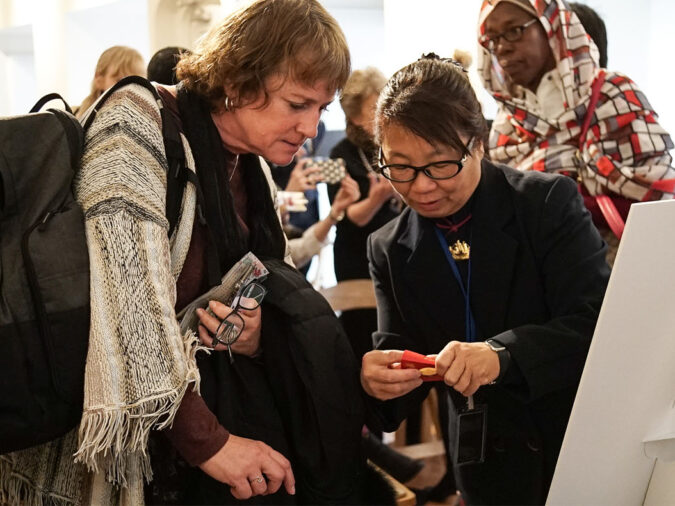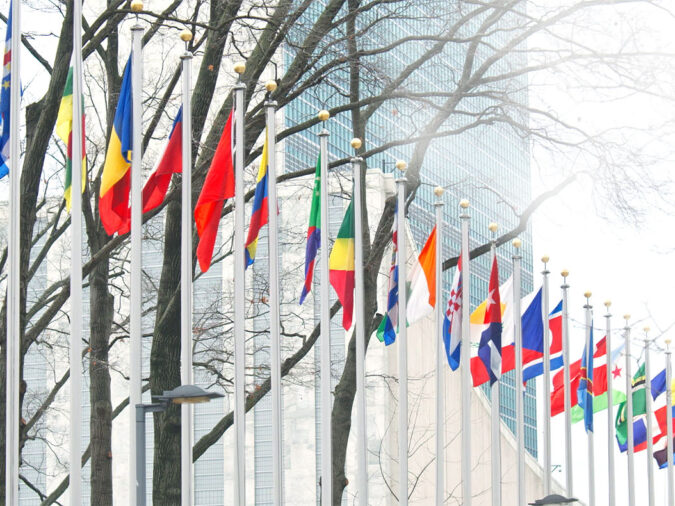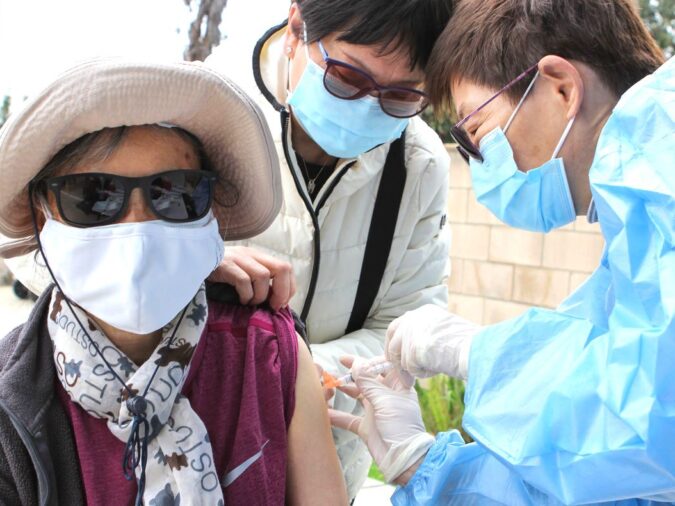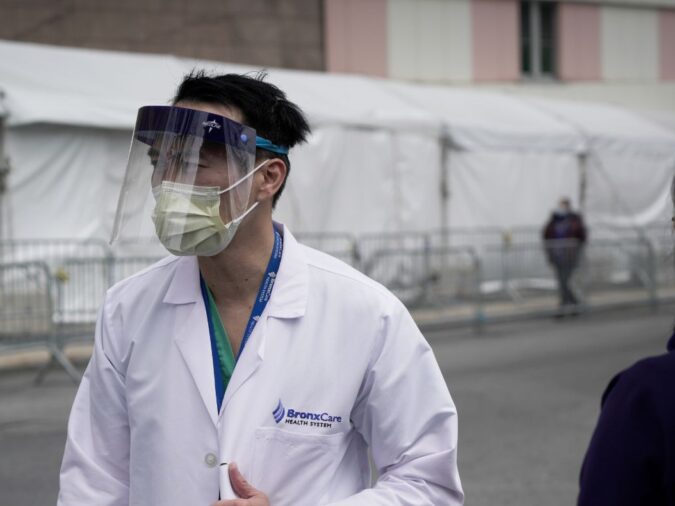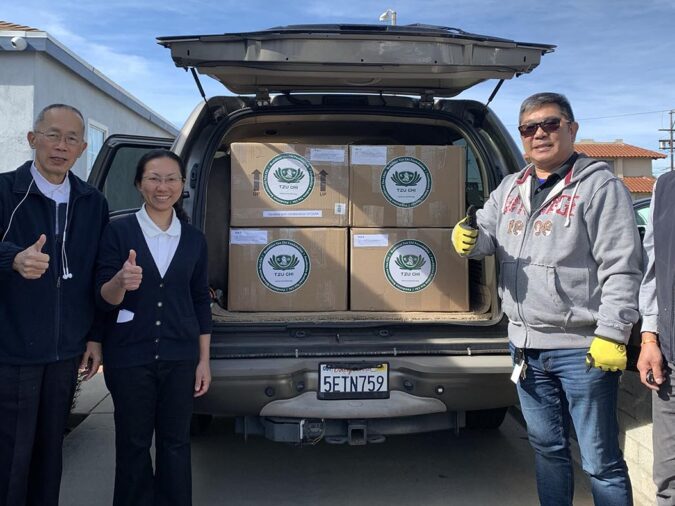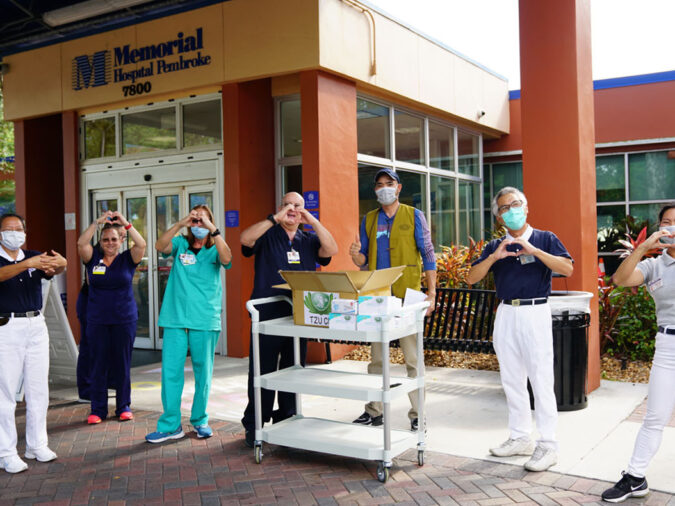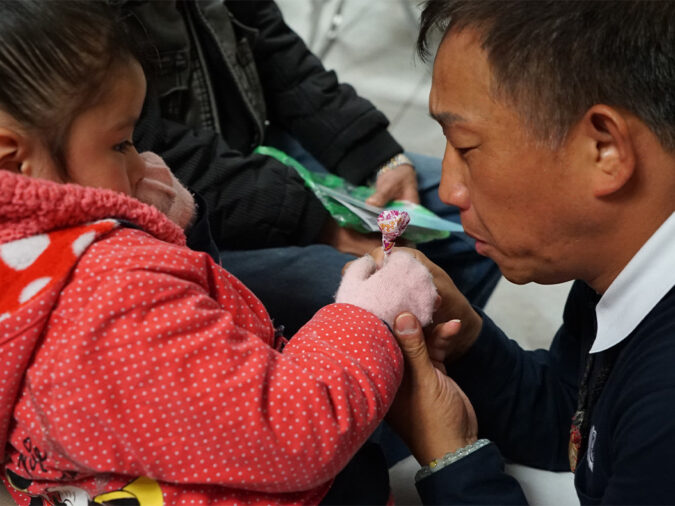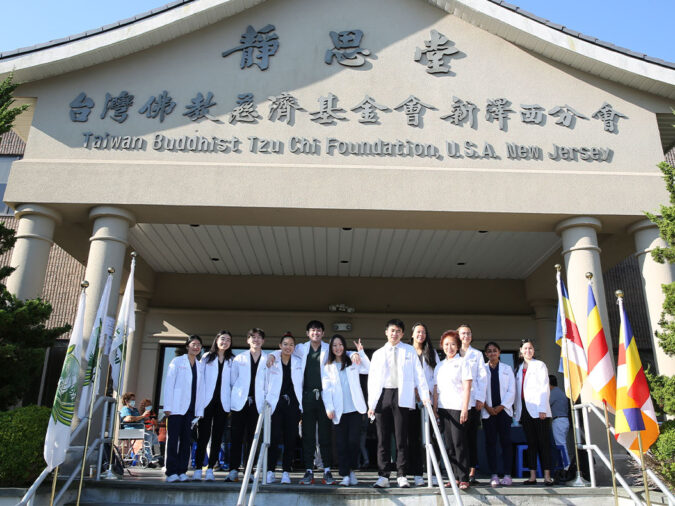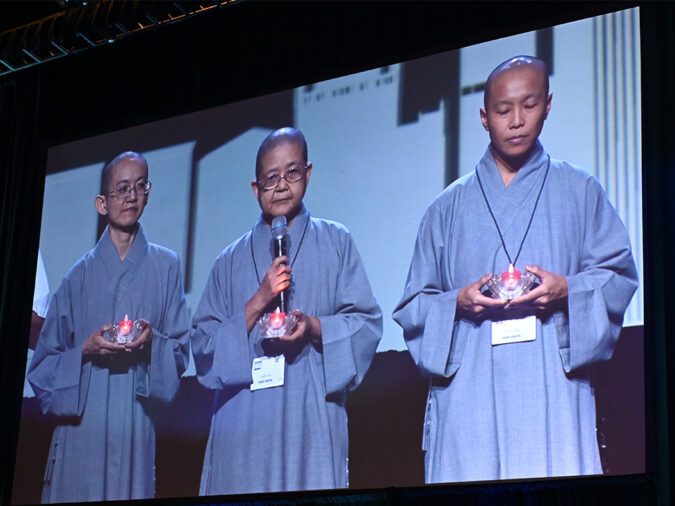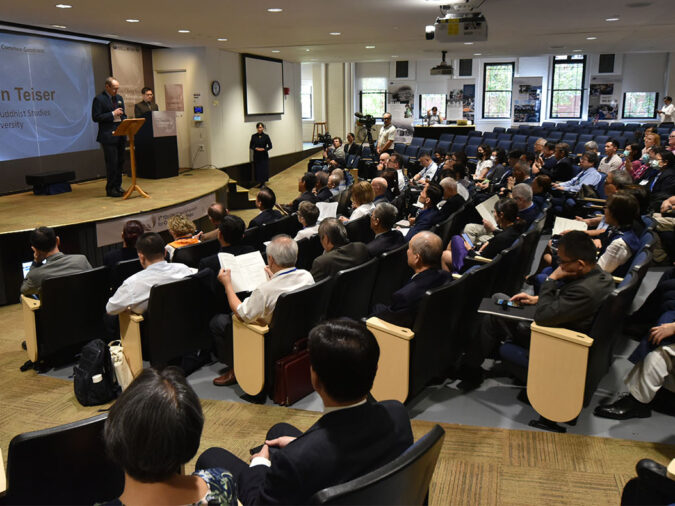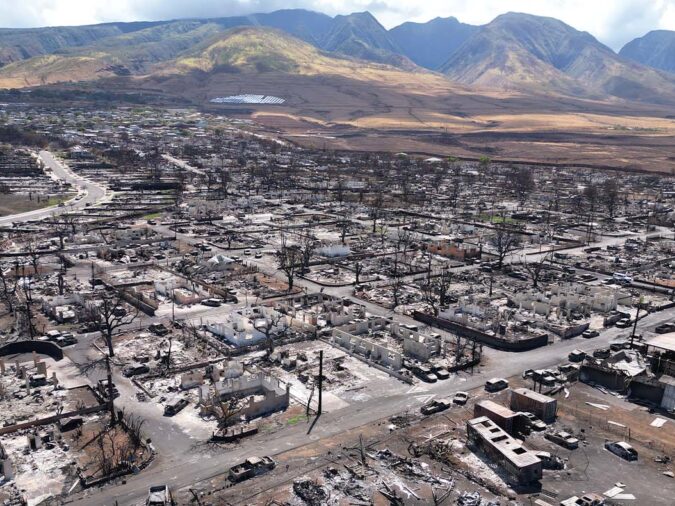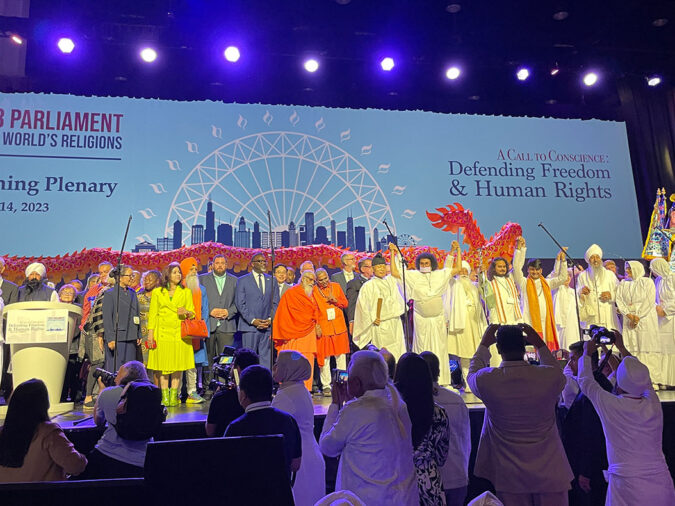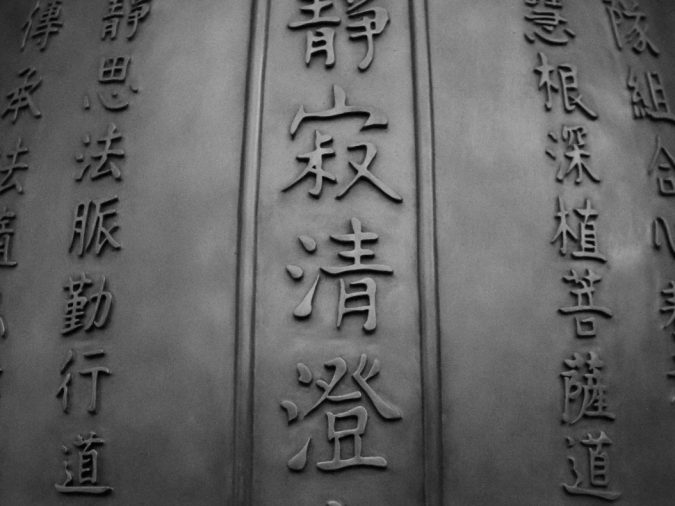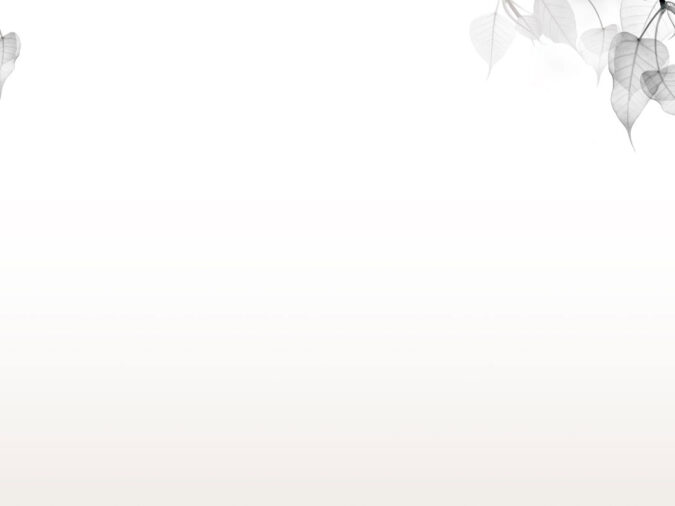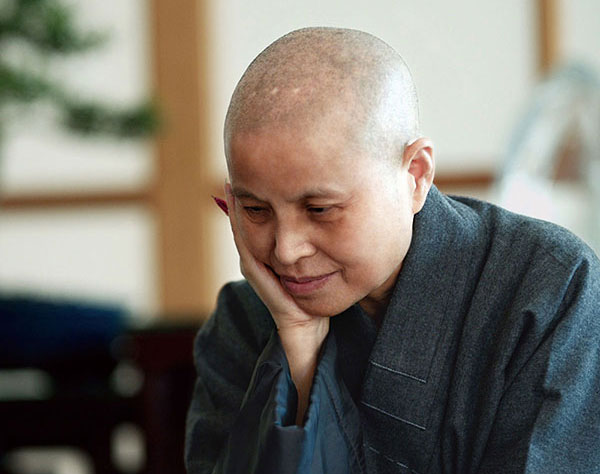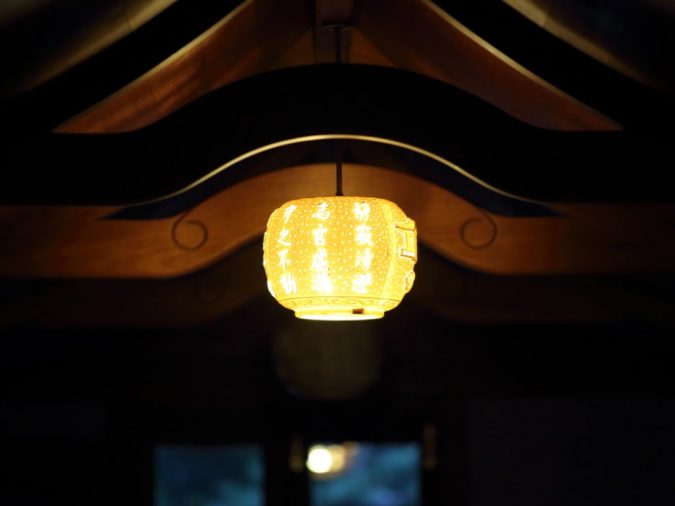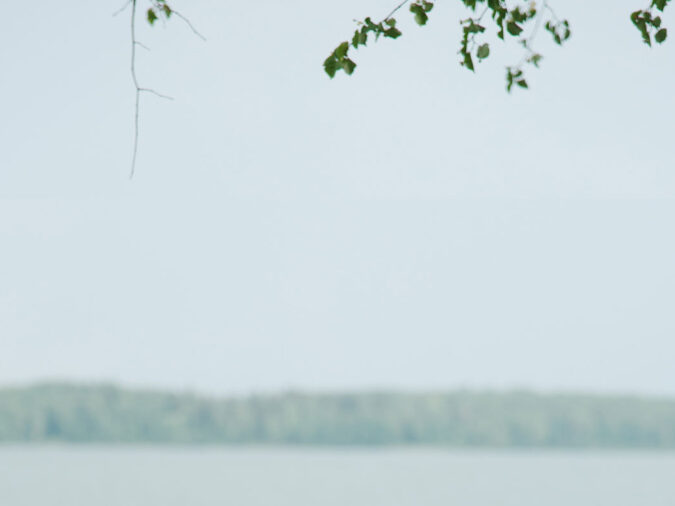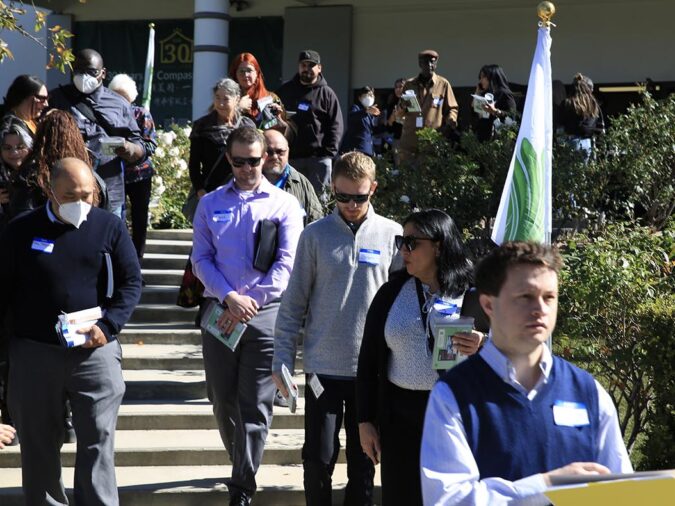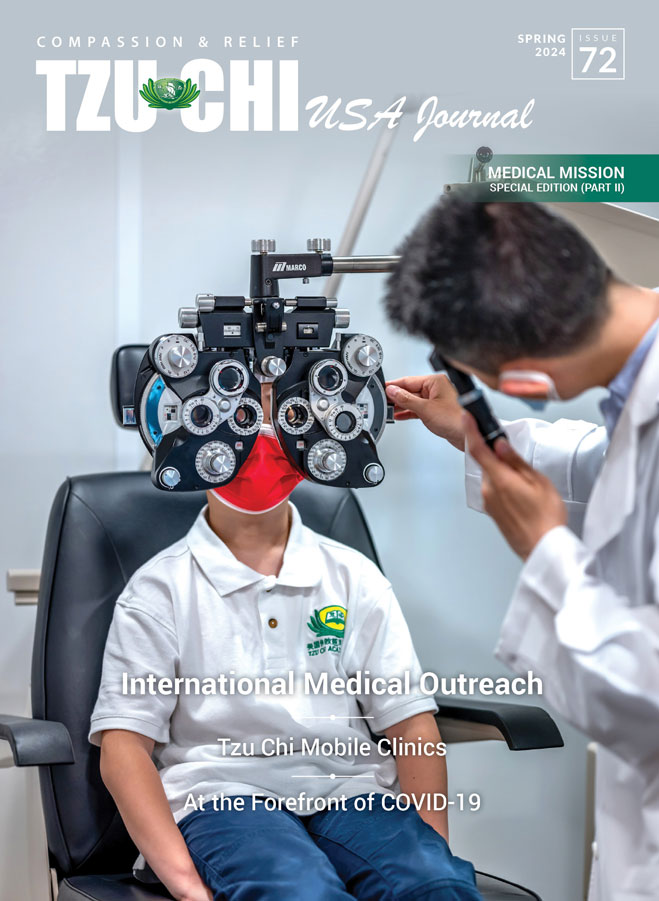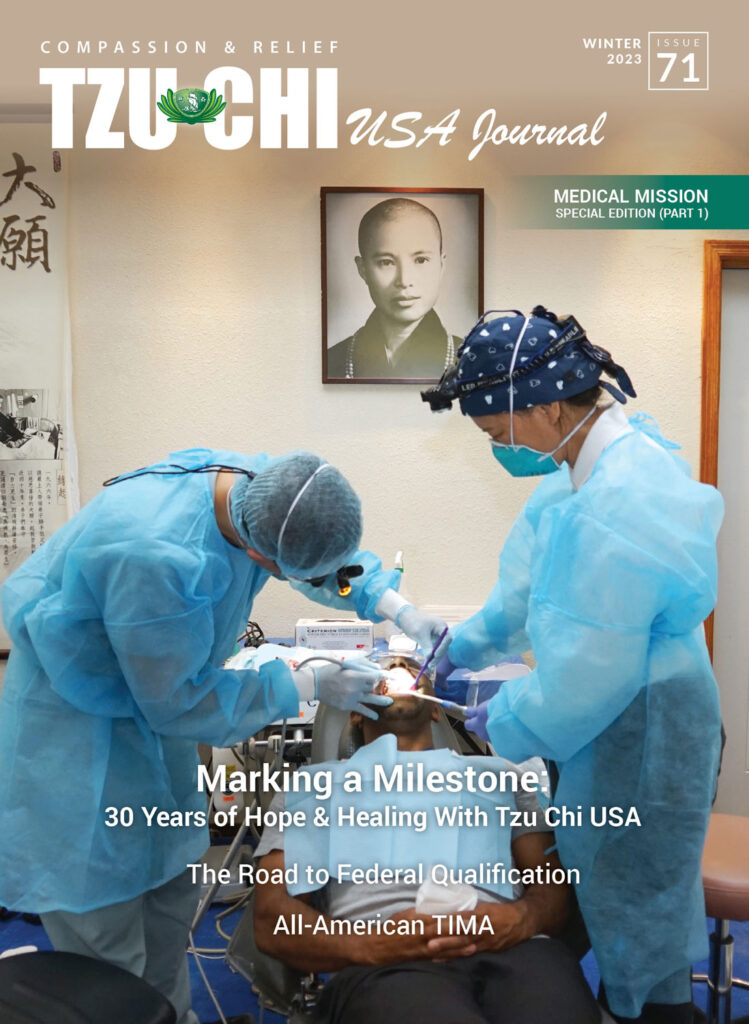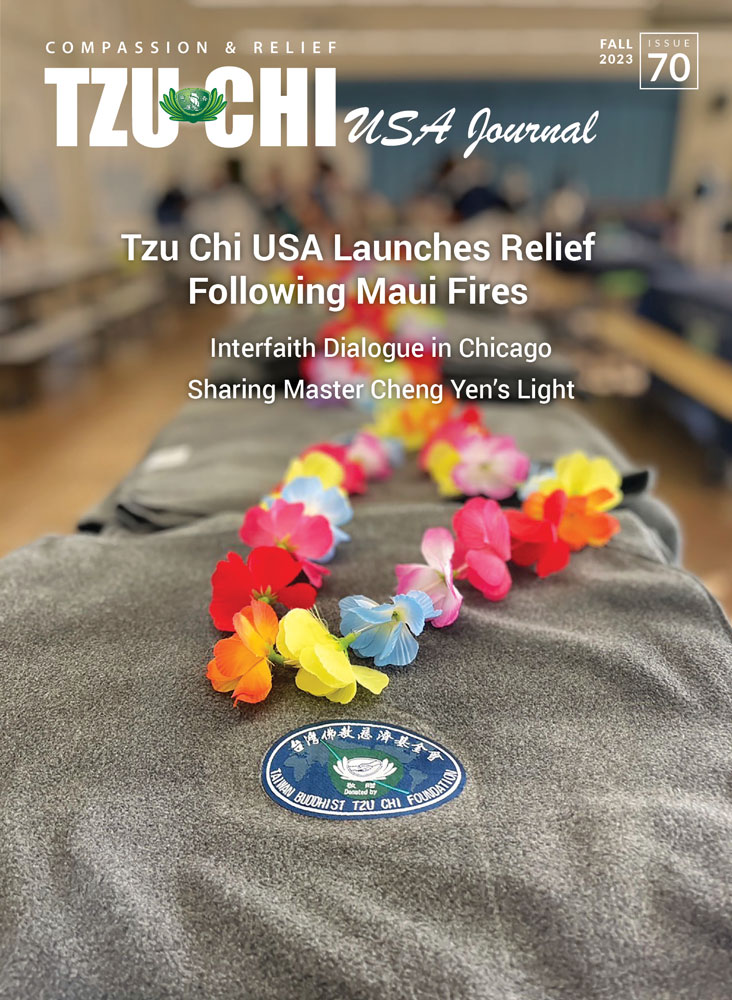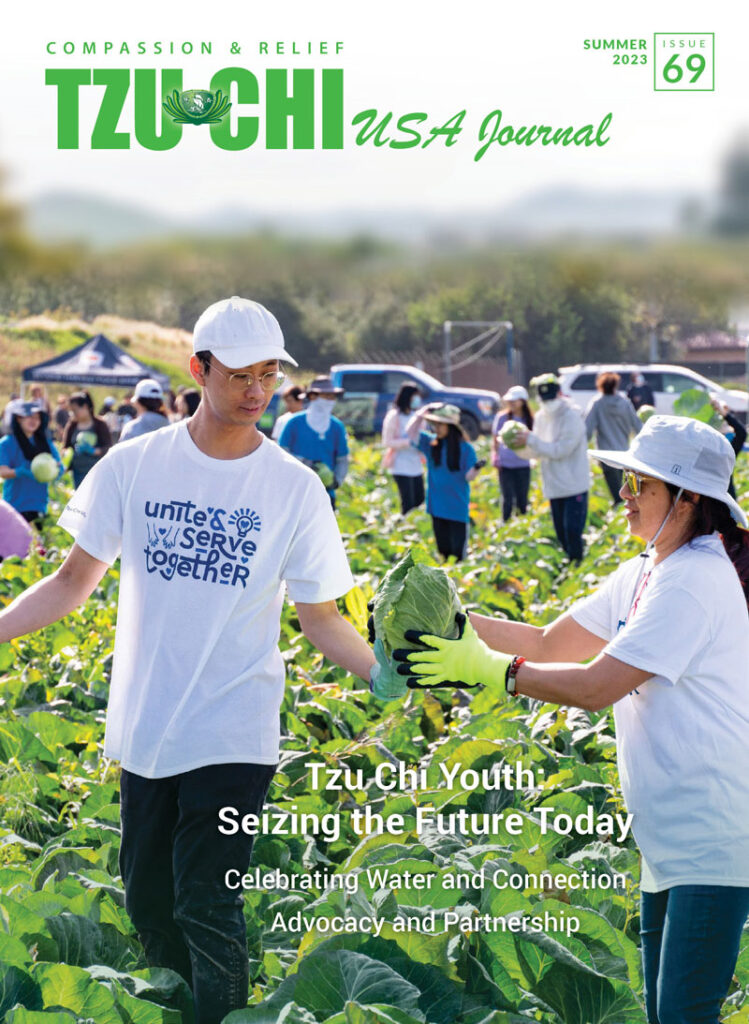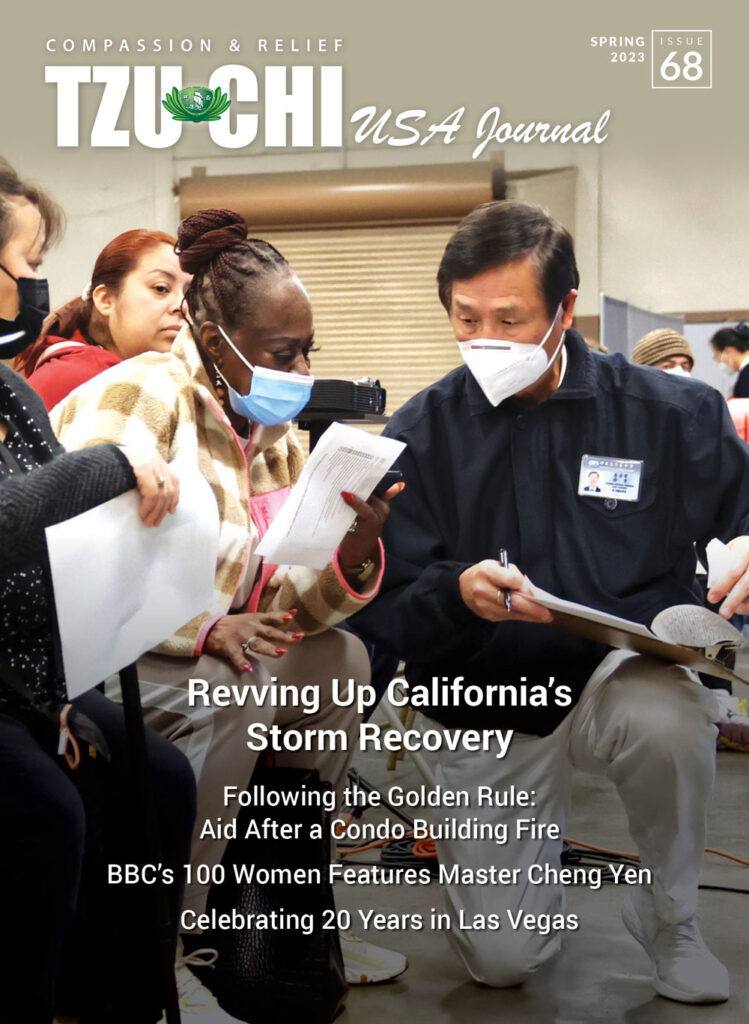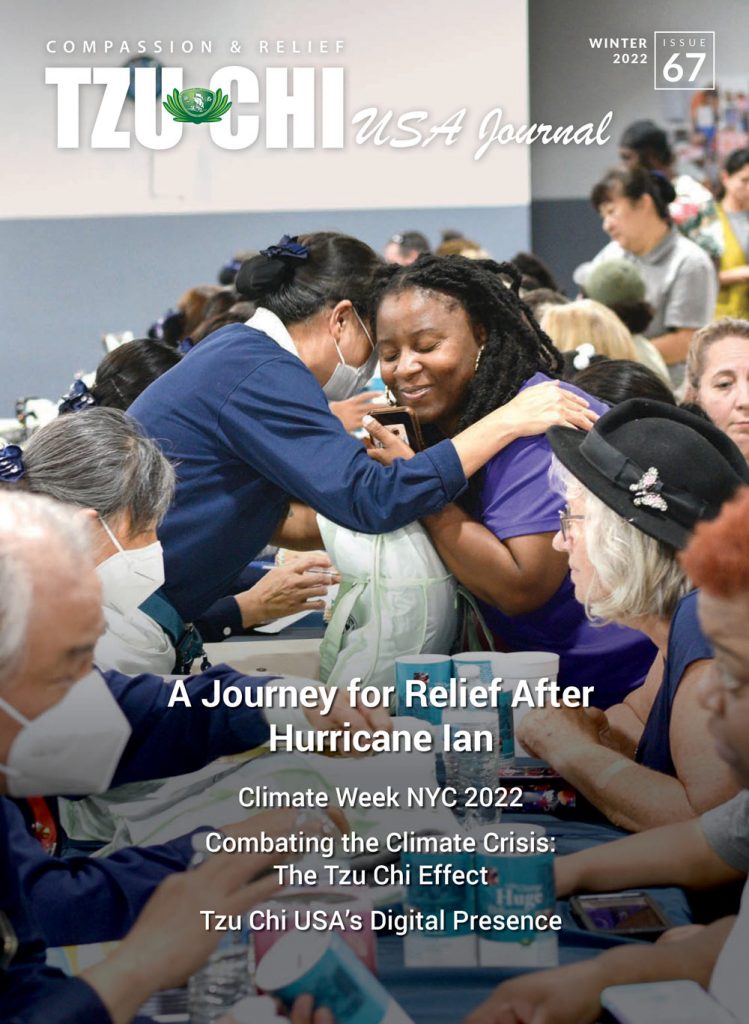The front window of the Tzu Chi Center for Compassionate Relief announces the Uprooted: Compassion After Displacement exhibition inside. Photo/Ting Fan
Written by Dilber Shatursun
Published #69 | Summer 2023 Issue
SHARE
From December 13-15, 2023, the UNHCR, the United Nations’ Refugee Agency, is hosting its second-ever Global Refugee Forum in Geneva, Switzerland. In the run up to this important event, Tzu Chi USA is hosting a multimedia exhibition at the Tzu Chi Center for Compassionate Relief in New York City.
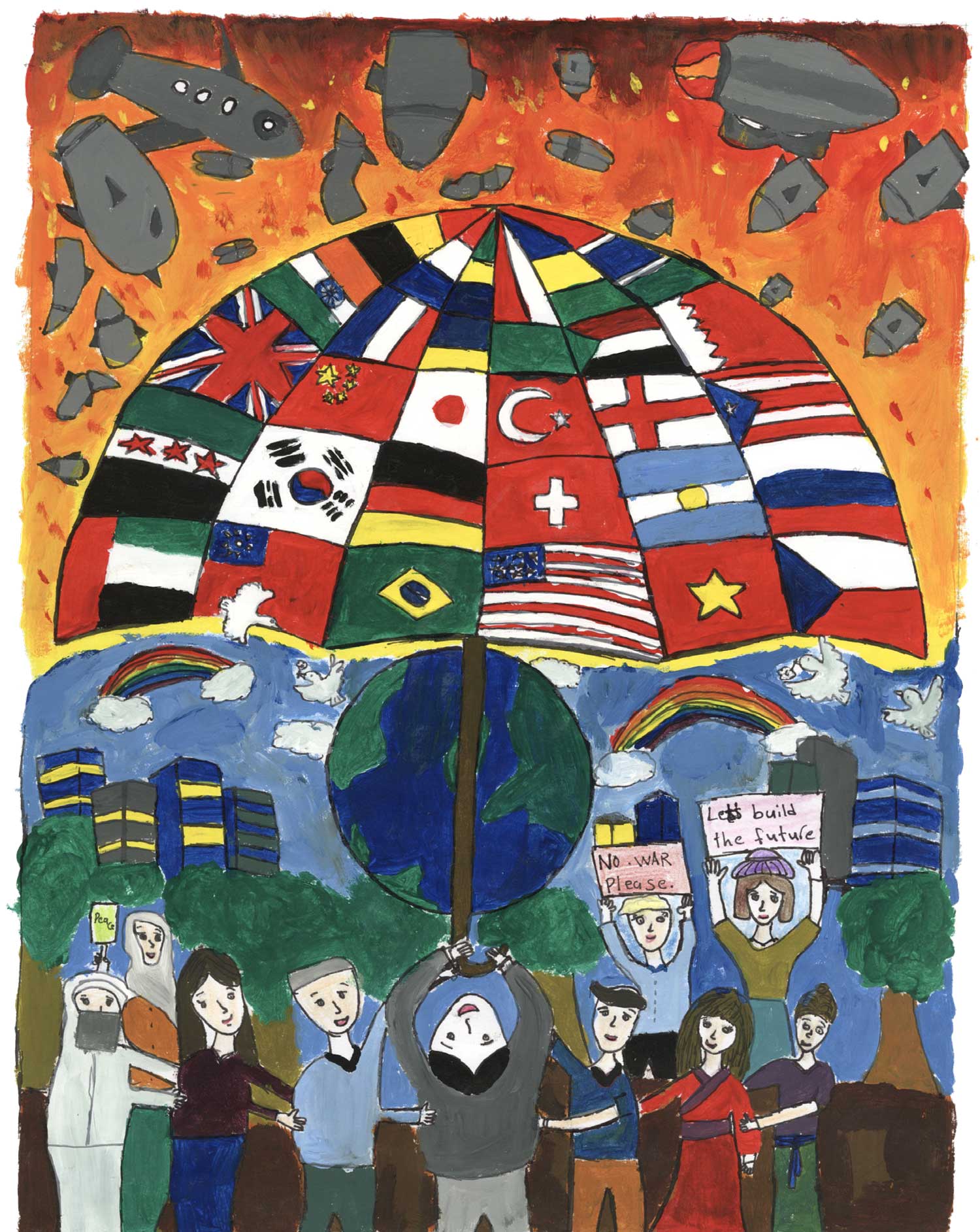
Spanning two floors, Uprooted: Compassion After Displacement is filled with compelling photos, videos, timelines, and stories that highlight the plight of those seeking refuge in other countries and how Tzu Chi’s philosophy of compassion in action (also known as engaged Buddhism) has had a positive impact. To gain more insight into the exhibit, I sat down for a virtual chat with Tzu Chi USA Chief Executive Officer (and long-time representative to the UN) Debra Boudreaux.
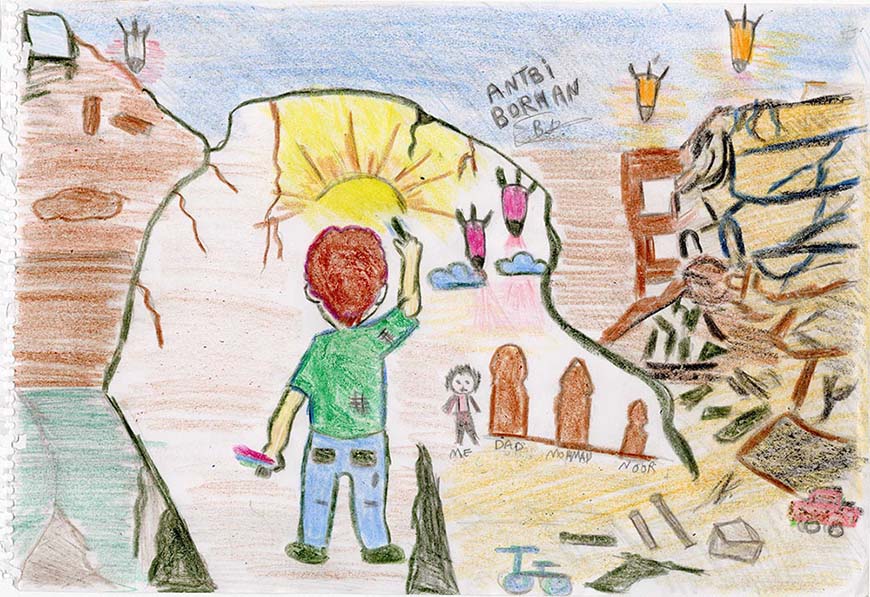
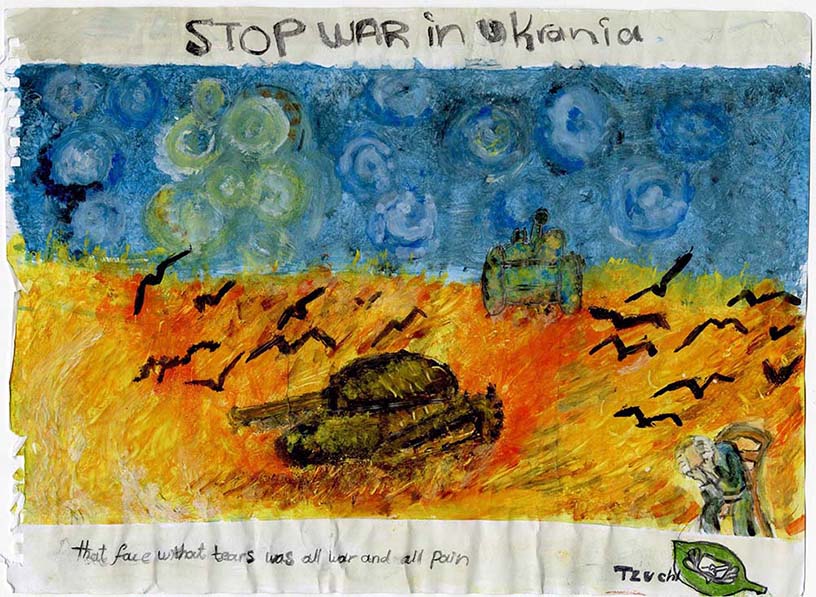
First things first: How did Tzu Chi USA get started in refugee affairs?
After the Kosovo War [in 1999], we provided medical and dental care for those who had arrived in Los Angeles. Then, we only saw them as our medical patients. Over the years, we began to provide support to people who were seeking refuge in the United States, but still we never used the term ‘refugee’ and instead referred to them as individual charity cases. We’ve just kept going.
So, how does Tzu Chi USA engage now at the domestic and international level?
Tzu Chi USA oversees refugee affairs in two different pathways; number one is as a result of migration to the USA and IDP, internally displaced people. These could be by the San Diego border from Tijuana, or in Las Vegas, Denver, DC, or even New York. Our capacity is to provide emergency cash assistance to cover their rent, transport, food, and those kinds of things.
For global refugees, for that migration, it’s totally different. We currently work with our global headquarters, which offers support to migrants including in Malaysia, Thailand, from Ukraine, in Serbia, and definitely Turkey and Jordan. Each one is governed by a different country’s authority. And because people from each country face different problems, be it war or a political situation, the perspective is different.
It also depends because Tzu Chi offices in each region of the world have their own strengths [to offer]. For example, in Thailand and Malaysia, Tzu Chi is able to provide safety net services, like medical care, dental care, and more. In Serbia, Tzu Chi provides livelihood support, including job skill training. Those are because Tzu Chi volunteers there are working with the UNHCR. In Turkey, Tzu Chi volunteers provide Syrian refugees with an educational platform, empowering adults, too.
But, no matter what, there’s a certain devotion [with which] Tzu Chi engages.
Uprooted: Compassion After Displacement highlights a lot of this work at the Tzu Chi Center in New York City. Can you tell me about the exhibit?
The concept behind it is that, as a faith-based organization, we’ve provided this kind of support to refugees and it’s going to allow us to reflect on the stories behind the numbers of forced migration. It encourages us to think about what you would do in that situation. It’s a pre-mitigation reflection.
On the other hand, it shows how our unique programs have achieved success and what they need to continue. Even across Tzu Chi USA, many of our volunteers don’t know what we do when we engage in refugee programs either—that’s the reality! So, I think it’s important to learn and take to heart that it could be any of us in the photos, videos, or stories you see in the exhibit. Otherwise, you are less compelled to take action when you don’t feel the connection.
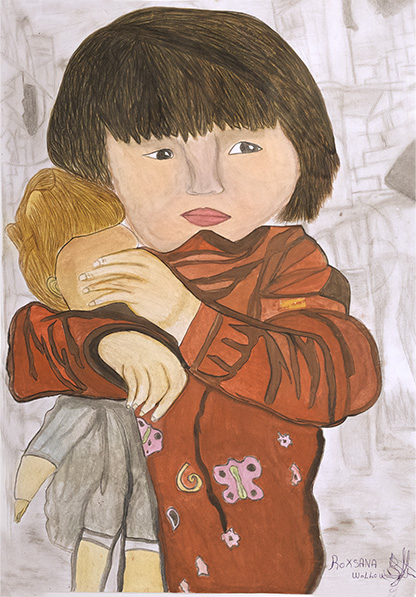
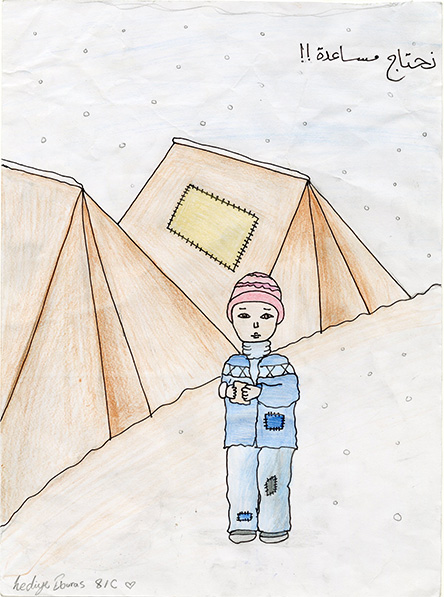
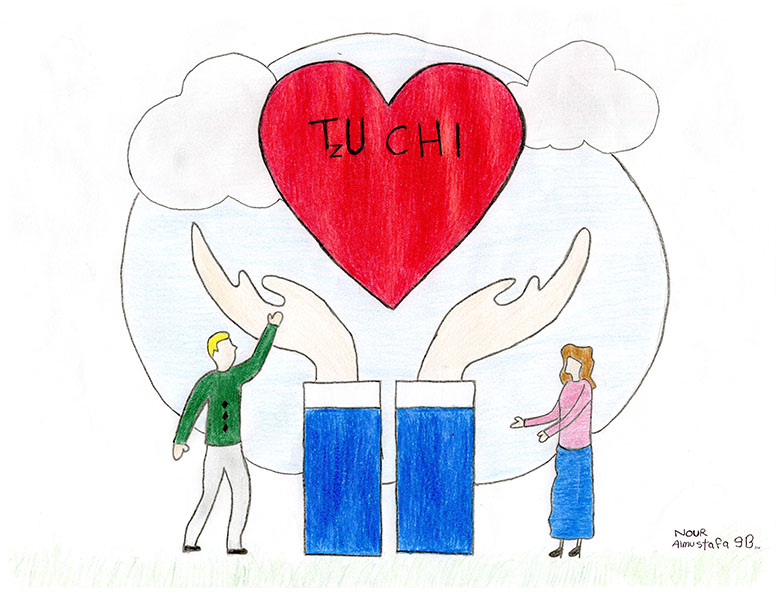
Who is Uprooted for?
The location we’re showing the exhibition in is on Manhattan’s Upper East Side, close to the UN family [near UN Headquarters in New York] and non-governmental organizations that know Tzu Chi. For them, it’s a chance to show our process of care; not so much what we provide but how we provide it. But, of course, the majority of the UN family and NGOs already know a lot about refugee issues.
We also want to share a lot with the general public, with people who are concerned, but don’t understand who we are, what we do, and how they can help, too. For example, if we show how we provided job skills and training in a certain part of the world, it opens a conversation, and helps them realize that they can donate to programs that change their community dynamics.
What’s something you think guests will be surprised to see there?
It’s very simple. Buddhists helping people. Buddhist helping Muslims, helping Christians, other Buddhists, and so forth. That kind of interfaith support. And that Buddhists are really doing so many good things around the world. We also want people to see that, yes, we are a reliable organization and we do what we say we will do.
What’s the biggest misconception people may have about those seeking refuge?
Anyone can suddenly be a refugee; [including] you and me. You can be a climate refugee, an economic refugee, a political refugee; you can be uprooted from one location to another. And you have no choice. It’s not just a term. It’s a test of your survival skills as a human being. And we have to have empathy [for one another] for this.
Ultimately, what do you hope Uprooted achieves?
This year, the Global Refugee Forum is a platform for Tzu Chi to inspire greater empathy in others and show how we can provide a more culturally-sensitive environment for people experiencing forced displacement. Through Tzu Chi’s achievements–our limited resources and programs–it’s a great lesson for everyone to understand that they can make a difference.
Visit Uprooted: Compassion After Displacement, on display at the Tzu Chi Center for Compassionate Relief (229 E 60th St., New York, NY 10022) 11 am to 4 pm daily from June 17, 2023. Admission is free.
